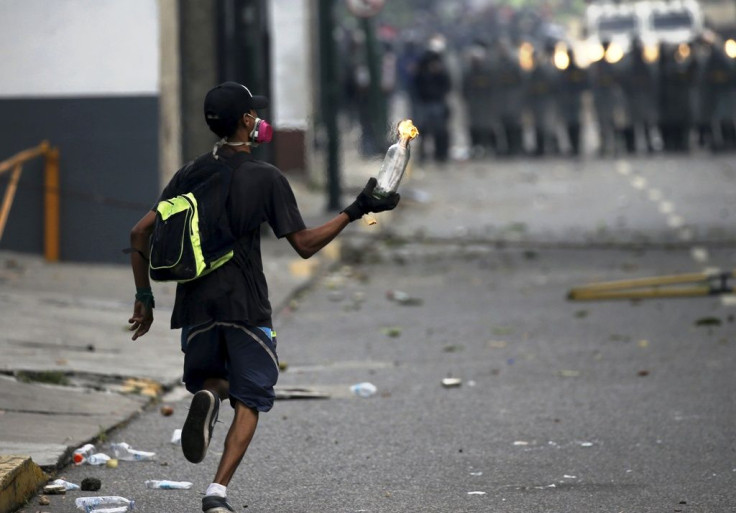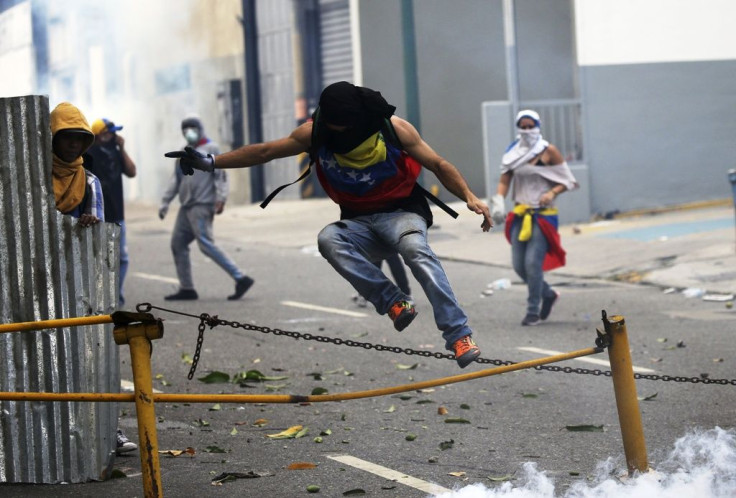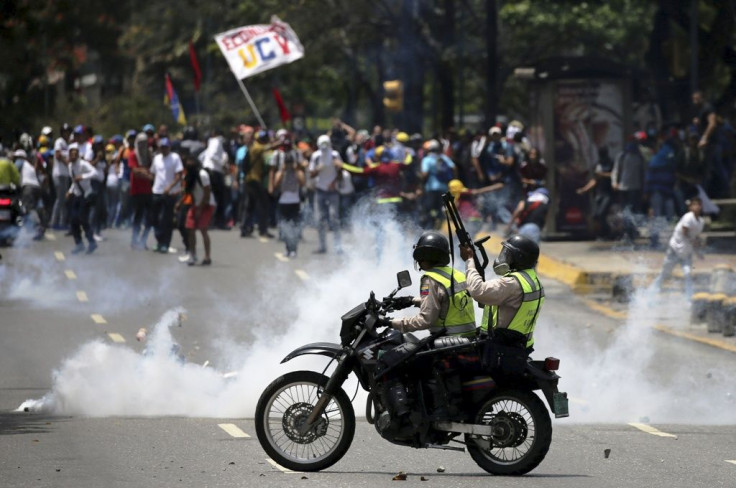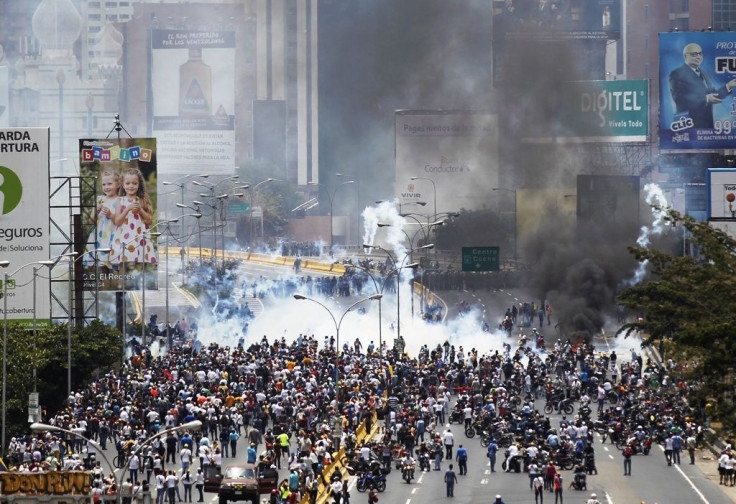What’s Happening In Venezuela? Crisis Deepens As Anti-Maduro Protests Worsen, US Expresses ‘Grave Concern’

Demonstrators in Venezuela clashed with police Monday on the fifth day of violent protests against President Nicolas Maduro’s government. Protesters have called for elections in the South American nation, which is reeling under economic crisis, and is facing shortage of food and other necessities.
Monday’s demonstrations stemmed from the government-controlled Supreme Court’s decision last month to dismiss the legislative powers of the opposition-led National Assembly. Following uproar, the court overturned the verdict.
Read: China, Russia, Iran Could Take Advantage Of Likely Humanitarian Crisis In Venezuela, US Admiral Says
However, the situation worsened after the national comptroller Friday banned senior politician and opposition figure Henrique Capriles from holding public office for 15 years. Capriles was seen as the opposition's best bet in a presidential election due next year.

Riot police fired tear gas at protesters who threw Molotov cocktail at law enforcement officials and burned tires. Opposition leaders criticized Maduro’s socialist government for arbitrary use of force to counter Monday’s protests.
But, the government blamed the opposition for inciting violence to destabilize the government. Interior Minister Nestor Reverol said 18 people were taken into custody during the demonstrations.
"These extremist sectors promote violent acts during the days that our people celebrate Holy Week, thus taking on the role of anti-Christ," Reverol said in a televised statement.

Apart from holding the opposition responsible for the protests, the Venezuelan government blamed a U.S.-backed business elite for the country’s worsening economic tensions. It previously alleged Washington was behind the protests to oust Maduro who assumed power in 2013 after the death of former President Hugo Chavez.
Meanwhile, the U.S. State Department issued a statement late Monday expressing “grave concern” over Capriles’ ban.

“We [the U.S.] note the largest public demonstration of the year on Saturday, as well as protests today, and echo the Venezuelan people’s calls for prompt elections, respect for the constitution and the National Assembly, and freedom for political prisoners,” the department said in the statement.
“We urge President Maduro to reconsider the decision to bar Capriles and ensure Venezuelans can exercise their right to elect their representatives in free and fair elections in accordance with the Venezuelan constitution and consistent with international instruments,” it added.

During a meeting with leftist leaders in Cuba, Maduro maintained that the U.S. is responsible for the tensions in the country, Agence France-Presse (AFP) reported Monday.
"The order has been given from Washington that there must be no dialogue in Venezuela, to make our country explode and give way for a foreign intervention," Maduro said.
Bolivia, Cuba, Ecuador, Nicaragua and some Caribbean countries issued a statement backing Maduro. The countries criticized "aggression and manipulation" against Venezuela and said these "threaten its sovereignty, independence and stability," AFP reported, citing the statement.
© Copyright IBTimes 2025. All rights reserved.





















